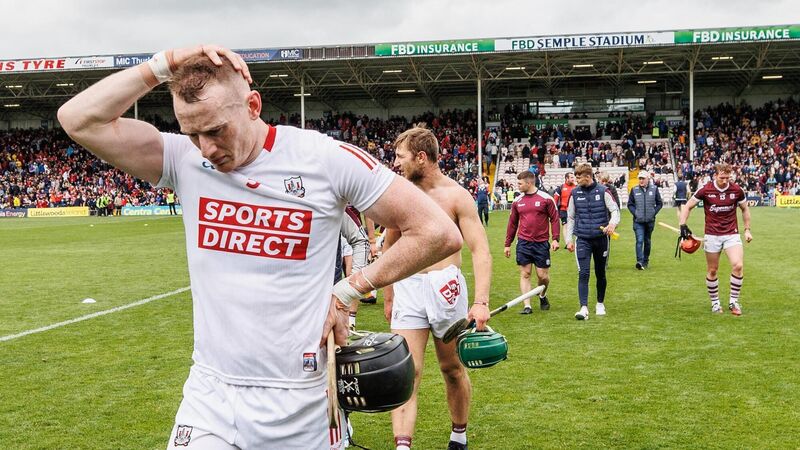Michael Moynihan: In the knife-edge referendum with Galway, Kingston and Cork spoil their own ballots

Left counting the cost: Cork’s Damien Cahalane walks off the field at Semple Stadium dejected at defeat to Galway. Pic: INPHO/James Crombie
Every game is a referendum in and of itself, of course. Saturday’s was no different. The ballot paper can be exhausting, if not exhaustive, with qualitative propositions stretching into the distance.
Munster v Leinster: which is better? Player or manager: who’s more influential? Thurles or Croke Park: which is the superior venue?








